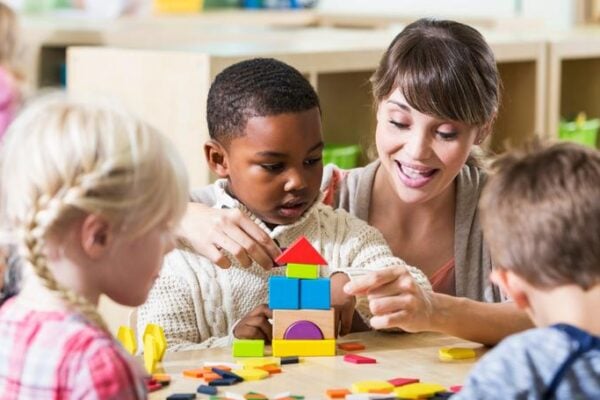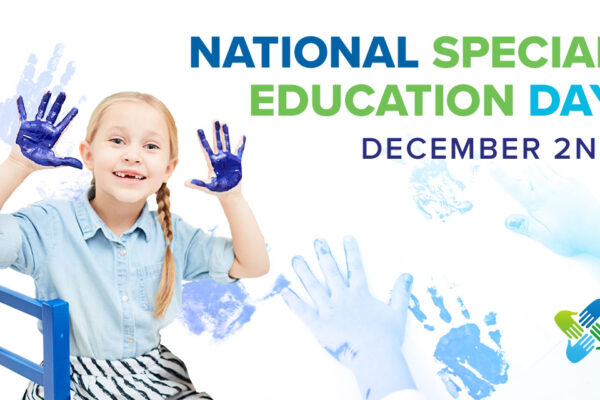Unlocking Potential: The Importance of Special Education in Nurturing Individual Growth
Understanding special education
Special education is a crucial field within the broader realm of education that is dedicated to meeting the unique needs of individuals with disabilities. It encompasses a range of services and supports that are designed to enable students with disabilities to reach their full potential and participate fully in their educational journey. Special education programs are tailored to address the specific learning requirements of each individual, and they play a vital role in fostering their intellectual, emotional, and social growth.
In order to effectively understand the importance of special education, it is essential to recognize the diverse range of disabilities that learners may experience. These disabilities can include but are not limited to intellectual disabilities, learning disabilities, autism spectrum disorders, attention deficit hyperactivity disorder (ADHD), and emotional or behavioral disorders. Each disability presents its own set of challenges, and special education programs are designed to provide individualized support and instruction to address these challenges effectively.
The importance of special education
Special education is essential in nurturing the growth and development of individuals with disabilities. It recognizes that every learner is unique and requires personalized instruction and support to succeed academically and beyond. By providing specialized education, special education programs empower individuals with disabilities to overcome their challenges, build confidence, and unlock their full potential.
One of the primary goals of special education is to ensure that individuals with disabilities receive an education that is tailored to their specific needs. This means that the curriculum, teaching methods, and learning materials are adapted to accommodate their unique learning styles and abilities. By doing so, special education fosters a positive and inclusive learning environment that allows individuals to thrive and make meaningful progress.
In addition to academic growth, special education also places great emphasis on the social and emotional development of individuals with disabilities. It provides opportunities for them to develop crucial life skills, such as effective communication, problem-solving, and self-advocacy. Special education also promotes social integration and inclusion, enabling individuals with disabilities to form meaningful relationships and participate fully in their communities.

Benefits of special education for individuals with disabilities
Special education offers numerous benefits for individuals with disabilities, allowing them to overcome challenges and achieve success in various aspects of their lives. Firstly, it provides a tailored and individualized approach to learning, ensuring that each student receives the support they need to reach their full potential. This personalized instruction enables individuals to make significant progress in their academic pursuits and develop a strong foundation of knowledge and skills.
Furthermore, special education programs foster a sense of belonging and acceptance. By creating inclusive learning environments, individuals with disabilities are able to interact with their peers and develop social skills that are crucial for building relationships and participating in society. This sense of belonging boosts their self-confidence and self-esteem, ultimately leading to higher levels of overall well-being.
Special education also equips individuals with disabilities with the necessary tools and strategies to navigate the challenges they may encounter in their daily lives. Through specialized instruction, individuals learn how to effectively manage their disabilities, develop coping mechanisms, and overcome obstacles. These skills are not only beneficial during their educational journey but also extend to their personal and professional lives, enabling them to lead fulfilling and independent lives.
Special education laws and regulations
Special education is governed by a set of laws and regulations that ensure individuals with disabilities receive the appropriate supports and services they need to succeed academically. In the United States, the Individuals with Disabilities Education Act (IDEA) is a federal law that guarantees the right to a free and appropriate public education (FAPE) for individuals with disabilities. This law outlines the rights and protections for students with disabilities and their parents, as well as the responsibilities of educational institutions.
IDEA mandates that students with disabilities receive an Individualized Education Program (IEP), a written document that outlines the student’s specific educational goals and the services and accommodations that will be provided to support their learning. The IEP is developed collaboratively by a team, including the student’s parents, teachers, and other professionals, to ensure that the student’s individual needs are met.
In addition to IDEA, there are also state and local laws that further define special education requirements and procedures. These laws vary by jurisdiction but generally align with the principles and provisions outlined in IDEA. It is important for parents and educators to familiarize themselves with the specific laws and regulations in their area to ensure compliance and the best possible outcomes for individuals with disabilities.
Inclusion vs. self-contained classrooms: Which is right for your child?
When considering special education options for their child, parents often face the decision between inclusion and self-contained classrooms. Both approaches have their merits and should be carefully considered based on the unique needs of the individual.
Inclusion refers to the practice of integrating students with disabilities into general education classrooms alongside their non-disabled peers. This approach emphasizes the importance of providing students with disabilities the opportunity to learn alongside their peers in a mainstream environment. Inclusion promotes social integration and fosters a sense of belonging for individuals with disabilities, as they have the opportunity to interact and build relationships with their non-disabled peers.
On the other hand, self-contained classrooms are designed specifically for students with disabilities. These classrooms provide a more specialized and targeted approach to instruction, focusing on meeting the individual needs of students with disabilities. Self-contained classrooms often have lower student-to-teacher ratios and additional support staff, allowing for more individualized attention and instruction.
The decision between inclusion and self-contained classrooms should be based on a thorough understanding of the student’s needs and abilities. It is important to consider factors such as the student’s academic abilities, social skills, and level of independence. Collaborating with the student’s IEP team, which includes parents, teachers, and other professionals, can help determine the most appropriate educational setting for the individual.
Individualized Education Programs (IEPs) and their role in special education
Individualized Education Programs (IEPs) play a crucial role in special education. An IEP is a legally binding document that outlines the specific educational goals and supports for an individual with a disability. It is developed collaboratively by a team of professionals, including the student’s parents, teachers, and other specialists.
The purpose of an IEP is to ensure that the educational needs of the individual with a disability are met in a personalized and individualized manner. The IEP includes information about the student’s disability, present levels of performance, annual goals, and the accommodations and modifications that will be provided to support their learning. It also specifies the services, such as speech therapy or occupational therapy, that will be provided to the student.
The development of an IEP is an ongoing process that involves regular assessment of the student’s progress and the modification of goals and supports as needed. The IEP team is responsible for reviewing and updating the IEP at least once a year to ensure that it continues to reflect the student’s needs and goals.
IEPs are designed to ensure that individuals with disabilities receive the necessary supports and services to succeed academically and make progress towards their goals. They provide a roadmap for educators and parents to work collaboratively in meeting the unique needs of the individual and unlocking their full potential.
Strategies for effective special education instruction
Effective special education instruction requires a thoughtful and individualized approach that takes into account the unique needs and abilities of each student. Here are some strategies that can contribute to the success of special education programs:
- Differentiated Instruction: Special education teachers should employ differentiated instruction techniques to address the diverse learning needs of their students. This involves adapting teaching methods, materials, and assessments to accommodate the individual strengths and challenges of each student.
- Multi-Sensory Approaches: Many individuals with disabilities benefit from multi-sensory instruction, which engages multiple senses simultaneously. This can include incorporating visual aids, hands-on activities, and auditory cues to enhance learning and understanding.
- Positive Behavior Supports: Special education programs should prioritize the implementation of positive behavior supports. This involves creating a supportive and structured environment that promotes positive behavior and minimizes challenging behaviors. It may include strategies such as visual schedules, rewards systems, and clear expectations.
- Assistive Technology: Technology can be a powerful tool in supporting individuals with disabilities in their learning journey. Assistive technology, such as speech-to-text software or specialized apps, can enhance accessibility and provide additional support for students with diverse learning needs.
- Collaboration and Communication: Effective special education instruction requires collaboration and communication among teachers, parents, and other professionals. Regular meetings and open channels of communication ensure that everyone is working together towards the common goal of supporting the student’s growth and development.
By implementing these strategies and techniques, special education teachers can create an inclusive and empowering learning environment that maximizes the potential of individuals with disabilities.

The role of technology in special education
Technology has transformed the field of special education, providing new opportunities and resources to support individuals with disabilities in their learning journey. Here are some ways in which technology plays a vital role in special education:
- Accessibility: Technology has greatly improved accessibility for individuals with disabilities. Assistive technologies, such as screen readers or alternative keyboards, enable individuals with visual or motor impairments to access educational materials and participate fully in the learning process. Additionally, digital platforms and online resources provide flexibility and customization options to meet diverse learning needs.
- Personalized Learning: Technology allows for personalized learning experiences tailored to the specific needs and abilities of each individual. Adaptive learning software can adjust the difficulty level of tasks based on the student’s performance, providing targeted instruction and support. This personalized approach enhances engagement and promotes individual growth.
- Communication and Collaboration: Technology facilitates communication and collaboration among students, teachers, and parents. Online platforms and tools enable real-time interaction, allowing for remote learning, virtual classrooms, and seamless communication between home and school. This connectivity enhances engagement, enables timely feedback, and promotes a collaborative learning environment.
- Data Tracking and Analysis: Technology enables the collection and analysis of data regarding students’ progress and performance. This data can provide valuable insights to inform instructional decisions and interventions. By analyzing trends and patterns, educators can identify areas of strength and areas for improvement, leading to targeted and effective instruction.
- Engaging Learning Materials: Technology offers a wide range of interactive and engaging learning materials that can capture the interest of individuals with disabilities. Whether through educational apps, multimedia content, or virtual simulations, technology provides opportunities for hands-on learning experiences that cater to diverse learning styles and preferences.
By harnessing the power of technology, special education programs can enhance accessibility, personalize learning experiences, and empower individuals with disabilities to reach their full potential.
Resources and support for families of children with special needs
Families of children with special needs often require additional resources and support to navigate the challenges they may face. Here are some key resources and support systems available to families:
- Parent Support Groups: Joining a parent support group can provide a valuable network of individuals who share similar experiences and challenges. These groups offer emotional support, information sharing, and practical advice based on firsthand experiences.
- Advocacy Organizations: Various advocacy organizations focus on supporting families of children with special needs. These organizations offer resources, workshops, and advocacy services to assist families in accessing appropriate educational services and navigating the legal and administrative aspects of special education.
- Professional Services: Families may benefit from seeking professional services such as counseling or therapy to address the emotional, behavioral, or developmental needs of their child. These services can provide guidance and strategies for managing challenges and promoting overall well-being.
- Community Programs and Services: Local community programs and services, such as recreational activities or respite care, can provide additional support for families. These programs offer opportunities for socialization, skill-building, and respite for caregivers.
- Online Resources: The internet provides a wealth of information and resources for families of children with special needs. Online platforms offer access to support groups, educational materials, research articles, and practical tips for managing various aspects of special education.
It is important for families to actively seek out and utilize these resources and support systems to ensure that they are fully equipped to support their child’s growth and development.





